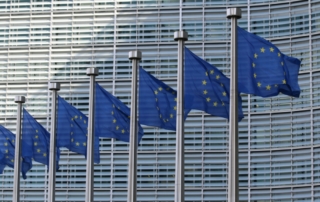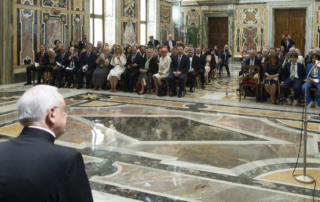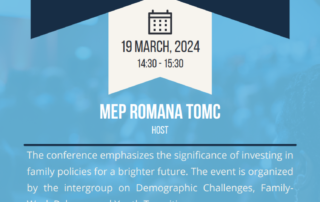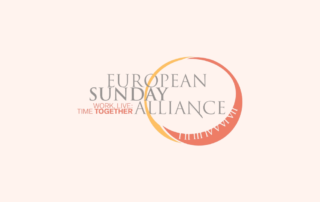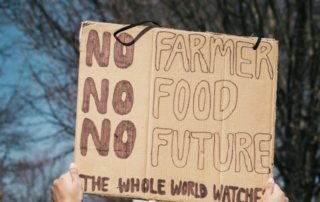Economy of the Family
The areas in which a family operates are relevant not only from a social standpoint but also from an economic one. Like any business, a family operates through organisation, professionalism, and efficiency. Family members conduct their family activities free of charge, producing many positive externalities to their members and to society as a whole. Therefore, a family can be classified as an economic entity, and its function is original and necessary to achieve the common good in areas of constitutional importance (e.g. education and care). Stronger families do not just consume good and services, but also finance the banking system with their savings and help relieve distressed public finances thanks to their intergenerational solidarity.
Family is a relevant economic actor that should be supported as much as companies in its role towards society.
FAFCE celebrates Saint Joseph’s Day
Brussels, 19th March 2024 19th March marks the feast of Saint Joseph. In Spain, Portugal and Italy, Saint Joseph's Day is also celebrated as Father's Day. We wish everyone a blessed Saint Joseph's Day, especially to fathers and husbands.
Invest in the family to improve EU living conditions
Brussels, 15th March 2024 FAFCE welcomes the European Parliament debate held yesterday on living conditions in the EU. In the context of an exacerbating cost of living crisis, young families are often experiencing economic hardship, which undoubtedly impacts their
FAFCE responds to Energy Performance of Buildings Directive
Brussels, 15th March 2024 On Tuesday, MEPs adopted a new Energy Performance of Buildings Directive. The plans, agreed on by the Council, aim to make the EU building sector carbon neutral by 2050. The targets set by the Directive
FAFCE welcomes resolution to create an annual designation of European Capitals of Children
Brussels, 15th March 2024 FAFCE welcomes the resolution on the creation of a European initiative for an annual designation of European Capitals of Children. The resolution was passed by the European Parliament yesterday. The resolution highlights the following: Children's
11th Anniversary of Pope Francis’ Election
Brussels, 13th March 2024 Today we celebrate the 11th anniversary of the election of Pope Francis. The first Jesuit Pope and the first from the Americas, his pontificate has been historic in form as well as substance ever since
FAFCE to co-host conference: Investing in the Family, Investing in the Future
Brussels, 12th March 2024 FAFCE will co-host a conference with Romana Tomc MEP entitled Investing in the Family, Investing in the Future in Brussels on Tuesday 19th March 2024. The conference emphasizes the significance of investing in family policies
FAFCE statement on the discussion of the Employment, Social Policy, Health and Consumer Affairs Council
Brussels, 12th March 2024 FAFCE welcomes the discussion of the Employment, Social Policy, Health and Consumer Affairs Council on 11th March. Families should be at the core of policy-making, particularly vulnerable families and large families. The Council called upon
FAFCE welcomes EU directive on platform workers
Brussels, 12th March 2024 On Monday 11th March, EU member states approved an agreement on the rights of platform workers. Considered under the status of contractor or self-employed, this directive provides a pathway towards the protections that are granted
FAFCE backs the work-free Sunday
Brussels, 3rd of March 2024 FAFCE is proud to be a member of the European Sunday Alliance and thanks all its partners for their commitment to this campaign. The European Sunday Alliance has said the following: "On the occasion
OPINION ARTICLE: Recovering Europe’s ‘popular spirit’
Farmer protests must remind us of the families and communities behind production Brussels, the 27th of February 2024 An opinion article by Vincenzo Bassi, President of FAFCE, regarding the ongoing farmers' protests. The current farmers’ protest



